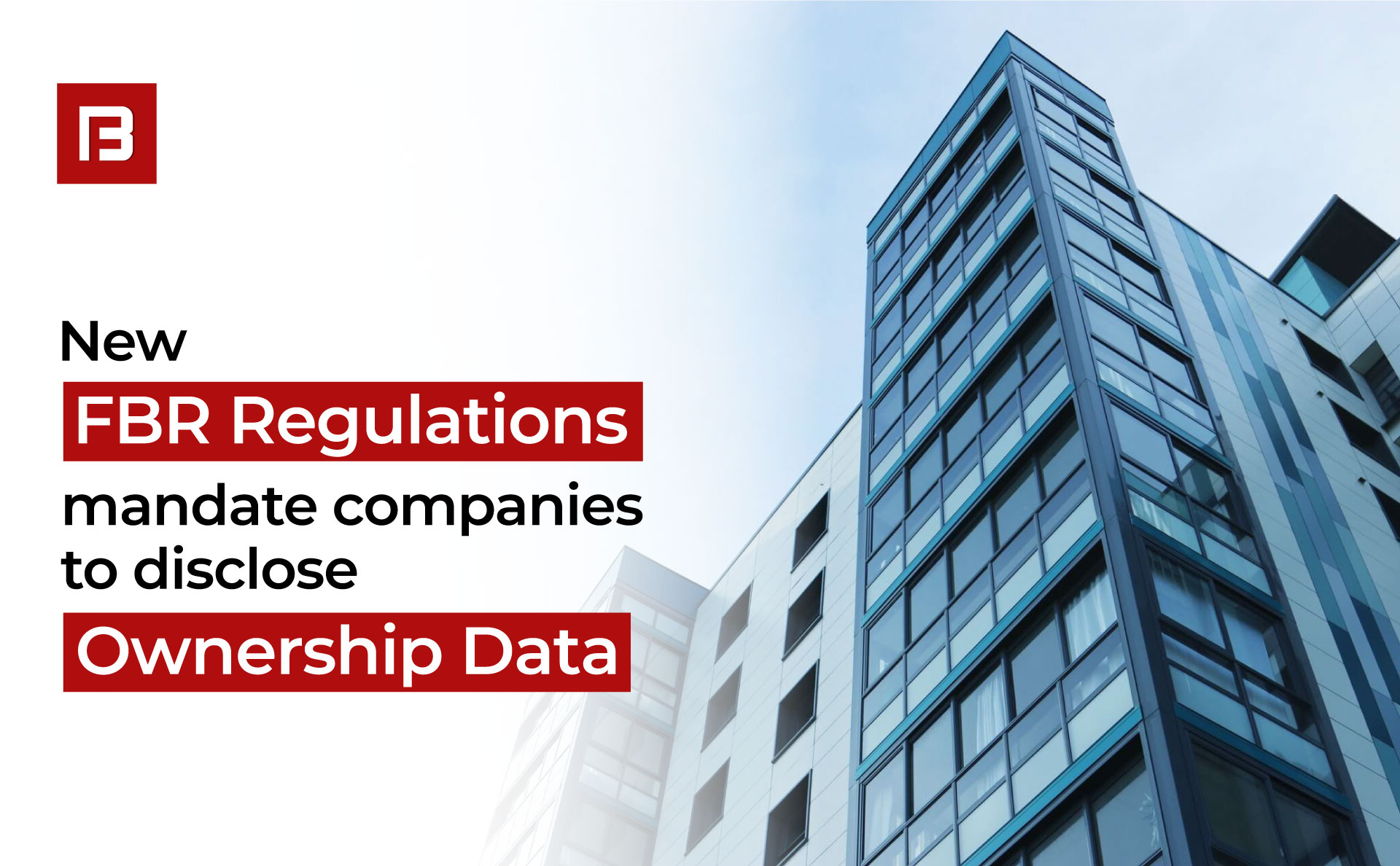FBR introduces requirements for Companies / AOPs to furnish Ownership Data

The Federal Board of Revenue has introduced new amendments to the Income Tax Rules, 2002 via a draft proposal on Feb 28, 2023.
The new rules will be specifically related to the record-keeping of beneficial owners.
Beneficial ownership refers to the individuals who ultimately have control over a company or an Association of Persons (AOP) or who benefit from its activities.
The new rules will make it compulsory for all companies and AOPs in Pakistan to provide information about their beneficial owners to the Federal Board of Revenue.
Following are the key points:
- Every existing or newly registered company and AOP must electronically furnish the particulars of its beneficial owners to the Federal Board of Revenue through the Board’s online system.
- The record of beneficial owners must be updated whenever there is a change in any of the particulars of the beneficial owner within 30 days from the date when the change occurs.
- If there is no change in the beneficial owners of a company or AOP throughout a particular tax year, the company or AOP must furnish a “Certificate of Confirmation for Beneficial Owner” to this effect through the FBR’s online system along with the Income Tax return to be filed for that tax year.
- In the case of a non-profit organization, the settlor, trustee, founder, promoter, beneficiary, class of beneficiary, as the case may be, will be the beneficial owners of the non-profit organization. However, where the beneficiary or class of beneficiary of the non-profit organization is the general public, the beneficiary or class of beneficiary of such non-profit organizations will be exempted from the requirement of providing information about beneficial owners under this rule.
In addition, the new rules introduce certain definitions related to beneficial ownership. For instance, the “Chain of ownership” refers to all legal entities and arrangements through which the ownership rights of a company or AOP are ultimately held by a natural person, while “ultimate effective control” refers to a situation in which ownership or control is ultimately exercised through direct and/or indirect means.
These new rules are aimed at increasing transparency and reducing the possibility of tax evasion, and are also in line with international best practices and standards regarding beneficial ownership transparency.

